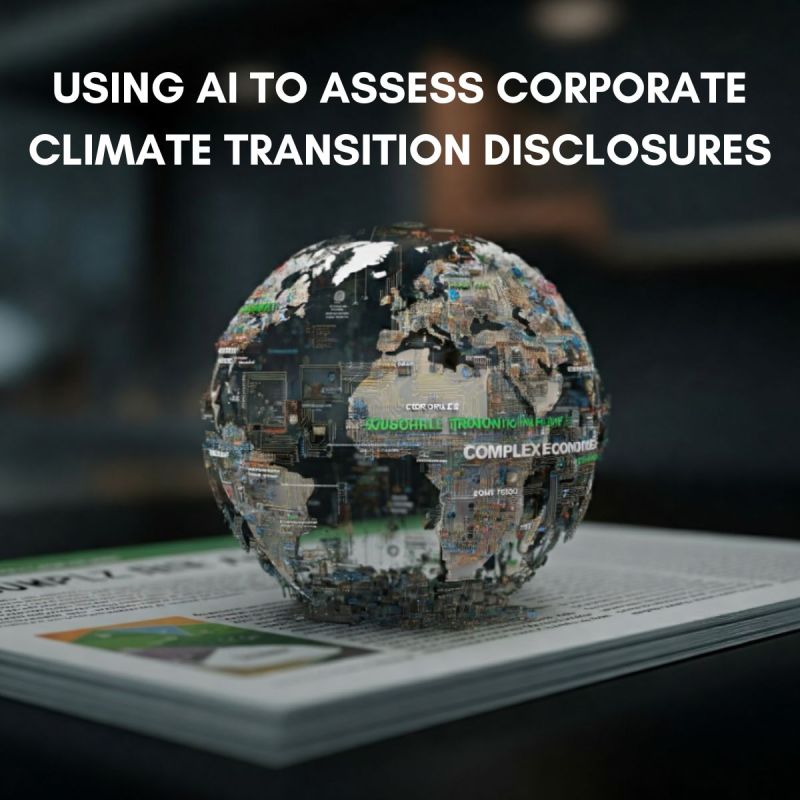 AI: The Next Big Thing in Corporate Sustainability?
AI: The Next Big Thing in Corporate Sustainability?
 Artificial Intelligence (AI) will transform climate performance accountability by streamlining analysis of complex sustainability data at scale.
Tools like Greensearch.ai, ChatNetZero, and ClimateBERT LLMs already extract insights from sustainability reports, identifying trends, gaps, and opportunities
for improvement. They also benchmark performance across sectors, highlighting leaders and laggards. By enhancing corporate environmental monitoring,
AI will increase transparency and enable informed decisions from stakeholders, including investors, policymakers, employees, and consumers.
You will find below a summary of the latest initiatives.
Artificial Intelligence (AI) will transform climate performance accountability by streamlining analysis of complex sustainability data at scale.
Tools like Greensearch.ai, ChatNetZero, and ClimateBERT LLMs already extract insights from sustainability reports, identifying trends, gaps, and opportunities
for improvement. They also benchmark performance across sectors, highlighting leaders and laggards. By enhancing corporate environmental monitoring,
AI will increase transparency and enable informed decisions from stakeholders, including investors, policymakers, employees, and consumers.
You will find below a summary of the latest initiatives.
Climate AI Initiatives



 ClimateBert is a LLM developed in a series of research papers
by the author team of Julia Anna Bingler, Mathias Kraus, Markus Leippold, and Nicolas Webersinke.
The model, based on DistilRoBERTa, was pretrained over a large amount of specific climate data
(over 2 million paragraphs of climate-related texts, crawled from various sources such as common news, research articles,
and climate reporting of companies) and eventually fine-tuned on downstream tasks (e.g. detect climate-related content, assess sentiment, identify commitments...).
The models are open-source and available on Hugging Face.
ClimateBert is a LLM developed in a series of research papers
by the author team of Julia Anna Bingler, Mathias Kraus, Markus Leippold, and Nicolas Webersinke.
The model, based on DistilRoBERTa, was pretrained over a large amount of specific climate data
(over 2 million paragraphs of climate-related texts, crawled from various sources such as common news, research articles,
and climate reporting of companies) and eventually fine-tuned on downstream tasks (e.g. detect climate-related content, assess sentiment, identify commitments...).
The models are open-source and available on Hugging Face.